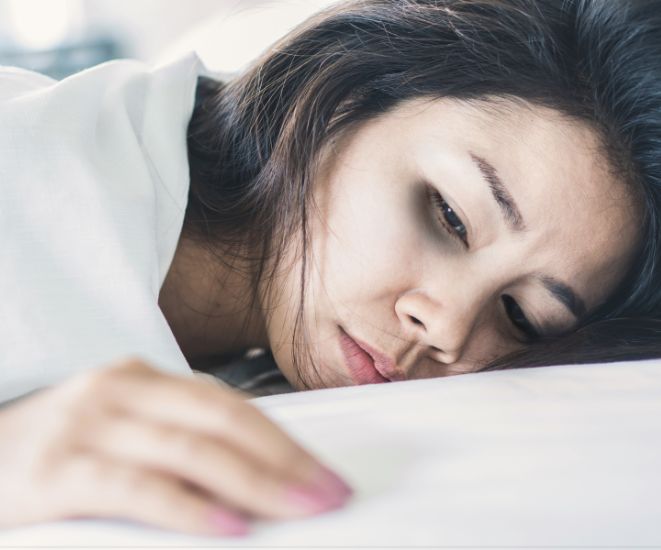Wake Up Refreshed
Getting good sleep is very important. However, some people find it hard to fall asleep or stay asleep. If that's you, talk to your doctor about sleep aids and treatment options that can help.
Treatment Options for Better Sleep
1. Make Your Bedroom Cozy
Your bedroom should be a relaxing place for sleep. Here are some ways to make it more sleep-friendly:
- Keep it dark. Use blackout curtains to block outside light.
- Control the temperature. Most people sleep better in cooler rooms, so aim for about 65°F (18°C).
- Reduce noise. Consider using earplugs or a white noise machine to drown out sounds that might wake you.
- Limit screen time. Turn off your devices at least an hour before bed. The blue light from screens can keep your brain awake.
These changes can help create a calm environment that’s perfect for sleeping.
2. Try Relaxation Techniques
If you have trouble calming your mind, relaxation techniques can help. Here are some easy ways to relax before bedtime:
- Deep breathing. Take slow breaths in through your nose, hold it for a moment and breathe out through your mouth.
- Gentle stretching. Stretching can help release tension in your body, especially in your neck and back.
- Meditation. This can help clear your mind of worries. You can find apps that guide you through meditation.
Doing these calming activities before bed can make falling asleep easier.
3. Create a Sleep Schedule
Having a regular sleep schedule is one of the best ways to improve your sleep. Going to bed and waking up at the same time each day can help your body know when it’s time to rest. Here are some tips for a good sleep routine:
- Go to bed at the same time every night. This helps your body recognize when it’s time to sleep.
- Avoid long naps in the afternoon. Napping too much can make it harder to fall asleep at night.
- Wind down before bed. Engage in a calming activity, like reading a book or listening to soft music, to help you feel sleepy.
Following these steps can make it easier to fall asleep and wake up on time.
4. Watch Your Food and Drinks
What you eat and drink, especially close to bedtime, can affect your sleep. Try to avoid caffeine and sugar at least six hours before bed. Here are some more tips:
- Skip caffeine in the afternoon. Drinks like coffee, tea and soda can keep you awake if consumed too late.
- Don’t eat big meals before bedtime. A full stomach can make it hard to sleep comfortably.
- Limit alcohol. While it may make you feel sleepy, it can disrupt your sleep later in the night.
If you feel hungry before bed, choose a light snack, like a banana or a few almonds.
5. Talk to Your Doctor About Medications
If you’ve tried these options and still have trouble sleeping, consider speaking with your doctor. They can prescribe medications for sleep issues. These are often meant for short-term use to help when other methods haven’t worked. Always follow your doctor’s advice when using sleep medications.
Some people also find success with therapy, like Cognitive Behavioral Therapy for Insomnia (CBT-I). This therapy helps change thoughts and habits about sleep, making it easier to rest at night. It teaches you new ways to handle worries and helps build a better sleep routine.
6. Consider Natural Sleep Aids
Some people find natural sleep aids helpful for sleep problems. Always talk to your doctor before starting any new supplements. Here are some popular options:
- Melatonin. This natural hormone helps signal to your body that it’s time to sleep. A melatonin supplement might help if you struggle to fall asleep.
- Chamomile tea. A cup of chamomile tea can have a calming effect and help you relax.
- Lavender oil. Many people find lavender helps them sleep better. You can use it on your pillow or in a spray.
These natural aids can be simple ways to improve your sleep without needing strong medications.
By trying these treatment options, you can work towards better sleep and a happier, more energized life.

